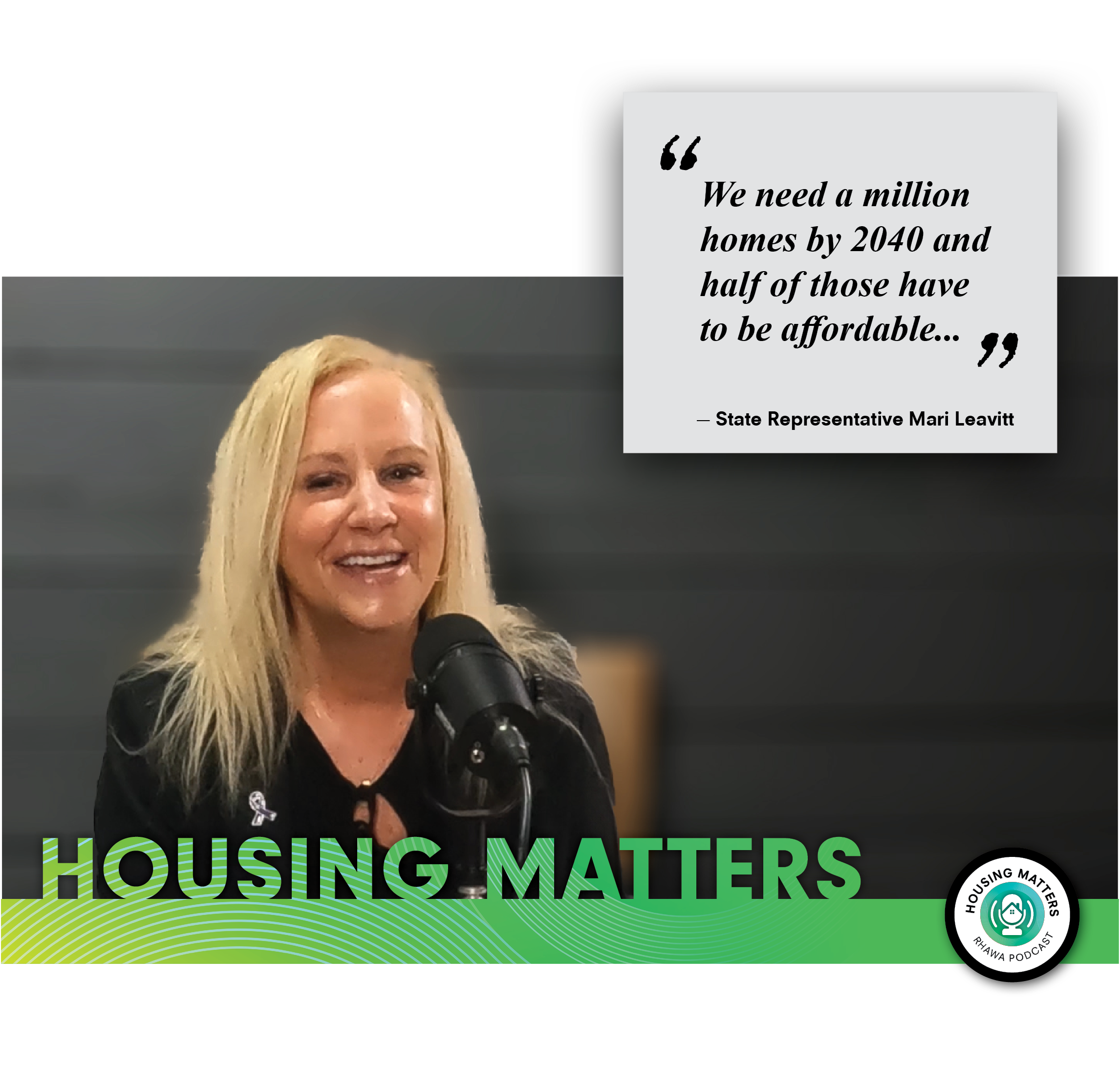Improving Housing Availability & Stability in District 28
I very much enjoy the podcast aspect of my duties here at RHAWA. I not only enjoy discussing policy with elected officials and industry professionals from all over the state, but I also really enjoy getting to know them on a more personal level. I had the pleasure of sitting down with State Representative Mari Leavitt, a Democrat from the 28th District. The 28th District is made up of University Place, Fircrest, Lakewood, Steilacoom, and Dupont, Elk Plain and a few surrounding islands.

If you closely followed the house rent control bill HB 2114, which was at the top of our opposition list in the 2024 Legislative session, you probably noticed the level of effort that was needed to defeat this bill. This bill would have imposed a 7% cap on raising rents, capping late fees at $10 and stipulations for a tenant being able to break a lease if the rent was raised 5% or more.
Representative Leavitt was one of only four Democrats who voted no on that bill on the house floor along with a unanimous Republican vote of no. The other Democrats to vote no were Representative Leavitt’s fellow 28th District Rep, Dan Bronoske, and Representatives Chapman and Walen. I am a little biased because the 28th District is my local District, so I was particularly pleased with the no vote from both of my Representatives.
Representative Leavitt and I discussed housing policy in our district as well as Washington State, why she chose to vote NO on 2114 and what she hopes all stakeholders can accomplish together for housing in Washington in the future.
“I’ve always had concerns that I haven’t seen the data that suggests when there’s a cap on rents that it turns around into more housing options. So that’s philosophically, principally that’s my overall concern and has been for a long time,” Leavitt said and spoke to what may come in next year’s session. “I do think we need to come back next year and do something. Not a cap, but something to address the challenges that our renters are having.”
Representative Leavitt also discussed some of her actions with HB 1892 which would give easy access to loans for private and non-profits to build more affordable housing. Given the shortage of housing in Washington state, anything that would expedite and ease that process is welcome by both parties and her bill was passed unanimously in both chambers.
“It’s going to be delivered by the Housing Finance Commission which is more their book of business. To allow workforce housing in the 50-80% AMI. I would love to move it up to 120%, but that’s not an option right now, but having this Workforce Housing Accelerator Loan Program it allows private developers to access it like our non-profits.” It is a workforce housing revolving program that requires repayment, but Leavitt says the repayments will give new capital for new builds as the program develops. She hopes to get significant investment in the fund in next year’s Legislative Session.
I closed our conversation by asking her what needs to happen to address our housing shortage and bring down prices in the process.
“We did quite a bit, myself and Representative Klicker, who’s the Ranking member on the House. We worked together on streamlining a permitting bill last year that got out that hopefully we’ll start to see the fruition of that as we move forward. I think you know continuing to remove barriers to get permits and make them faster and less expensive. The fees are exorbitant.” Leavitt says that the Housing Trust Fund will help with some of this development, but the private sector absolutely needs to take over with the sheer volume of homes needed. “We need a million homes by 2040 and half of those have to be affordable, and to give context for folks who may not know, we have built 65,000 homes with the Housing Trust Fund since 1986 the year I graduated from high school. So that’s not a lot if you think about 1986 to now and we need a million between 2024 and 2040 and half of those have to be affordable.”
We also spoke about the need for Accessory Dwelling Units (ADUs) and Detached Accessory Dwelling Units (DADUs) as well as the recent co-housing bill which passed in the legislature this year. For my full conversation with 28th District Representative Leavitt check out the Housing Matters podcast wherever you get your podcasts. The video version is also available on the RHAWA YouTube channel.

